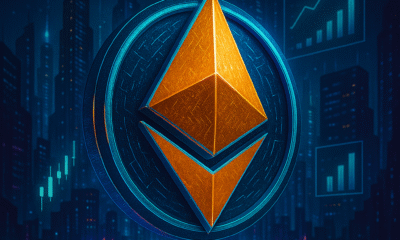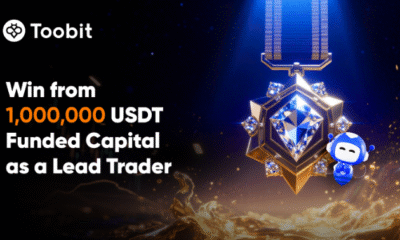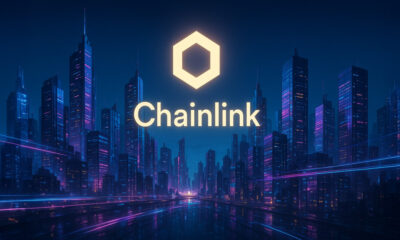Blockchain
A new architecture looks to challenge incumbents

Credit : cryptonews.net
Delta, a brand new layer 1 platform that challenges the established order for constructing high-throughput decentralized functions, has raised $11 million in funding.
The platform positions itself as a “community of networks” that goals to interrupt the standard trade-off between blockchain sovereignty and interoperability, a nagging drawback that many builders face at the moment.
Delta’s funding spherical was led by Figment Capital and Maven 11, with contributions from Variant, DBA and different traders. (Blockworks co-founder Michael Ippolito can be an angel investor.)
The practical objectives of Delta’s structure are just like these of the main rollup clusters – OP Superchain, the AggLayer or ZKsync Elastic Chain frameworks – all of which face interoperability points arising from Ethereum’s rollup-centric roadmap.
Dapp builders typically have to decide on between two approaches: constructing throughout the confines of a single framework or creating an unbiased app chain that should retrofit interoperability options.
The brand new strategy goals to mix the most effective of each worlds by giving builders native management over their setting whereas sustaining world connectivity by the bottom layer, mentioned Ole Spjeldnaes, CEO of Repyh Labs, which is constructing Delta.
“Initially we thought that is what Ethereum would seem like – you would not want these native clusters,” Spjeldnaes informed Blockworks.
Delta’s structure separates transaction execution and ordering from information availability and settlement, providing theoretical benefits over each app chains and rollups, which generally require advanced bridging options. In Delta, execution takes place inside particular person ‘domains’, that are just like app-specific rollups or execution shards.
The principle distinction with, for instance, a ZKsync Elastic Chain is that these domains retain full energy over their blockspace and may use any present digital machine or develop customized applications. Nonetheless, Delta eschews Ethereum, and all its domains choose a brand new decentralized base layer, guaranteeing shared world standing and interoperability.
“Delta is a extra bottom-up strategy to primarily attaining stronger properties than what one thing just like the ZK Elastic Chain can present, as a result of it’s a single state machine,” mentioned Spjeldnaes. “If Ethereum had not had to consider being backwards suitable and had foresight, that is what it might have ended up trying like.”
In contrast to Ethereum rollups, all property inside Delta’s community stay on the base layer, notes Myles O’Neil, Repyh’s chief product officer.
“There is not any actual equal for this in merger terminology,” O’Neil informed Blockworks.
This has penalties for the issuance of property and liquidity. For instance, a stablecoin is issued as soon as on the bottom layer and is routinely obtainable to be used in all domains.
One other notable function of Delta is its use of zero-knowledge proof-based settlement built-in straight into the bottom layer, permitting domains to collaborate with none exterior coordination or intermediate bridges.
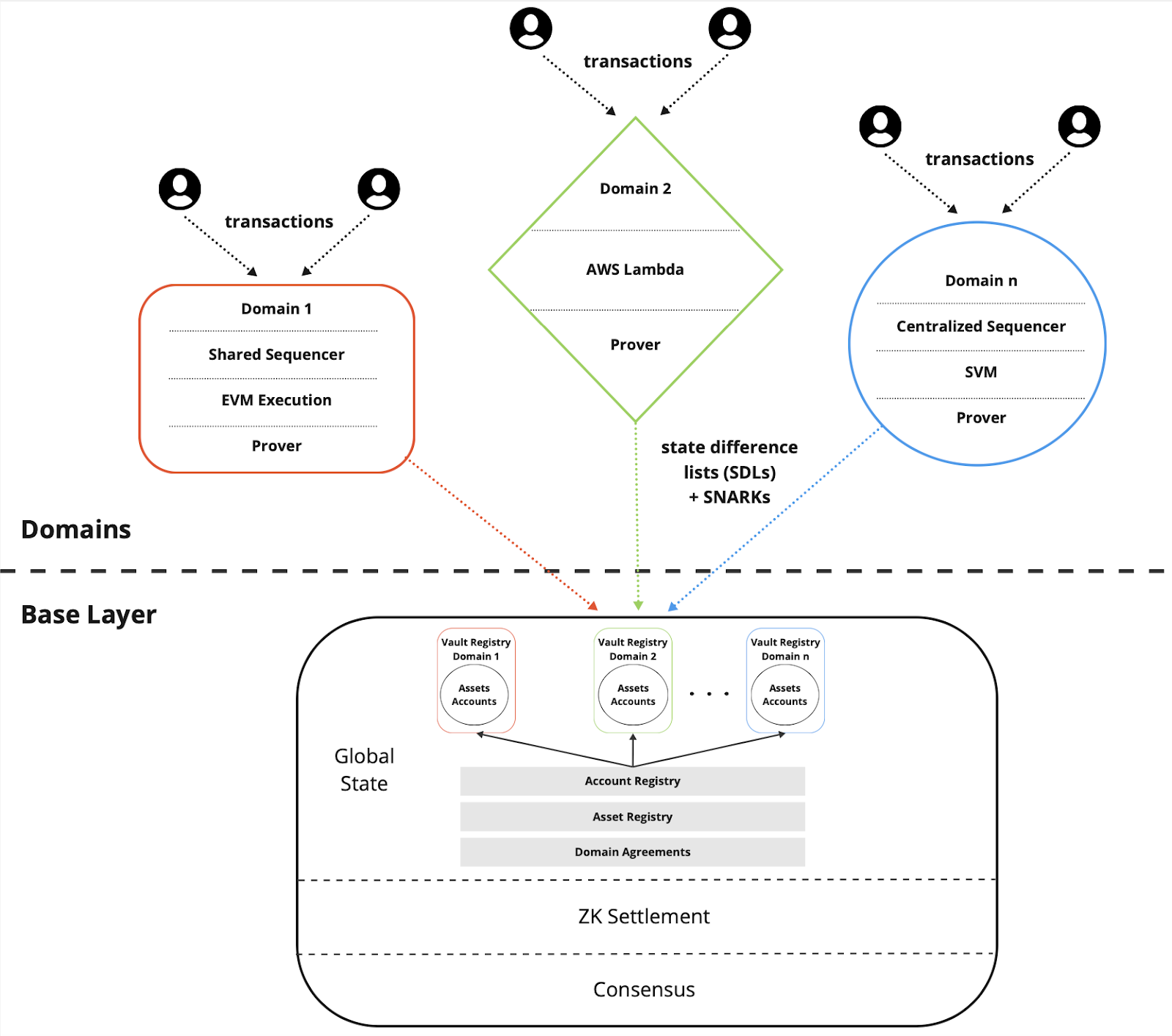
Supply: Repyh Labs
“There’s a minimal variety of issues that have to be confirmed by all domains,” Spjeldnaes defined, however so long as they comply with this set of so-called ‘world legal guidelines’ from Delta, they keep the pliability to sequence whichever implementation they select. . or the authorization mannequin they need.
Domains generate a State Diff Record (SDL), a compressed standardized format for state adjustments based mostly on their very own transaction order, and submit it to the bottom layer, together with proof that the SDL doesn’t violate any world regulation (or that the domains personal the listing). “native legal guidelines”). The state mannequin avoids conflicts between the state subsets of every area.
“We’ll let the domains have their say on how way more they wish to show,” O’Neil mentioned. “So in the event that they wish to be fully dependable, similar to a ZK rollup, they’ll select to show their complete execution path.”
All domains should use a shared prover, which must be “probably the most environment friendly for everybody,” Spjeldnaes mentioned. “The objective is de facto to maximise robust interoperability with out infringing on the sovereignty of every area,” he added.
Delta’s proof-of-stake validator set makes use of a leaderless and orderless consensus mechanism often called Byzantine Dependable Broadcast (BRB), which Spjeldnaes compares to Sui’s Narwhal-Bullshark consensus algorithm.
“I feel Sui may be very elegant,” mentioned Spjeldnaes. “They will merely place orders for these transactions that require orders [but] that provides a number of overhead – which you’ll see from the benchmarks – you have got Narwhal after which on high of that you must add Narwhal consensus, and that is actually the bottleneck.
BRB avoids this overhead, and Spjeldnaes famous that the computational necessities for validators will probably be very low as a result of their major job is verifying proofs. By eliminating the necessity for world transaction ordering, the community scales linearly as extra machines are added, Spjeldnaes mentioned.
“We additionally see this as a protocol that might scale fairly properly when it comes to the variety of validators, however we have not examined this but so we won’t actually make a robust declare about it.”
Delta’s largest drawback will probably be the right way to ramp up utilization and convey assets to one more layer 1 community. With the mainnet launch nonetheless over a 12 months away, O’Neil mentioned they are going to be going after each crypto natives and non-crypto builders from the fintech and Web2 world.
By addressing the shortcomings of present main ecosystems reminiscent of Ethereum and Solana, the crew hopes to show the advantages of a brand new paradigm.
“What a system would seem like in case you constructed all the things from scratch,” O’Neil mentioned.
-

 Meme Coin7 months ago
Meme Coin7 months agoDOGE Sees Massive User Growth: Active Addresses Up 400%
-

 Blockchain1 year ago
Blockchain1 year agoOrbler Partners with Meta Lion to Accelerate Web3 Growth
-

 Videos1 year ago
Videos1 year agoShocking Truth About TRON! TRX Crypto Review & Price Predictions!
-

 Meme Coin1 year ago
Meme Coin1 year agoCrypto Whale Buys the Dip: Accumulates PEPE and ETH
-

 NFT9 months ago
NFT9 months agoSEND Arcade launches NFT entry pass for Squad Game Season 2, inspired by Squid Game
-
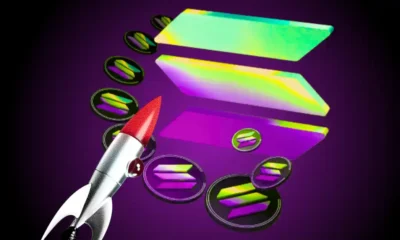
 Solana4 months ago
Solana4 months agoSolana Price to Target $200 Amid Bullish Momentum and Staking ETF News?
-

 Ethereum1 year ago
Ethereum1 year ago5 signs that the crypto bull run is coming this September
-

 Gaming1 year ago
Gaming1 year agoGameFi Trends in 2024







